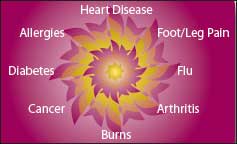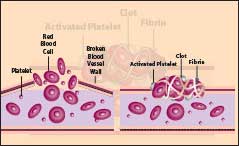ADVANCED LIPID TESTING

LDL-S3GGE: Size of LDL Particles
- Small LDL particles can cause plaque build up to progress much faster because they can enter the artery wall easier than large LDL particles
- Too many small LDL particles can increase your risk for a heart attack beyond any other risk factors you may have, such as smoking, high blood pressure, diabetes, etc.
- Certain medications, proper nutrition, and regular exercise can help your body produce fewer small LDL particles
HDL-S10GGE: Size of HDL Particles
- HDL-C helps to protect against progression of plaque build-up in the artery wall
- HDL2b is the workhorse of all of the HDL particle types. It has the ability to pick up and remove cholesterol
- Certain medications, improved nutrition, loss of body fat, stopping tobacco use, and increased physical activity are some ways that HDL-C and HDL2b can be improved
ApoB: Accurate LDL Particle Number
- ApoB is a direct measurement of the amount of LDL (“bad” cholesterol) particles
- A high apoB number indicates increased risk for heart disease
- Improved eating habits, increased physical activity, and loss of body fat are some lifestyle changes that improve apoB
Your physician uses apoB to determine if certain medications are needed and to monitor their effectiveness.
Lp(a): Extended Range

- High levels of homocysteine can cause injury to blood vessel walls, increasing your risk for heart disease and stroke
- Blood pressure can potentially increase with high levels
- Nutrition, such as increasing intake of folate-rich foods, plays an important role in reducing levels of homocysteine
Homocysteine

- High levels of homocysteine can cause injury to blood vessel walls, increasing your risk for heart disease and stroke
- Blood pressure can potentially increase with high levels
- Nutrition, such as increasing intake of folate-rich foods, plays an important role in reducing levels of homocysteine
ApoE Genotype

- ApoE is a genetic test that plays a role in helping to identify how people respond to different amounts of dietary fat. Your body’s response to dietary fat impacts the formation of small or large LDL particles
- There are 3 types of apoE genotypes: apoE2, apoE3 and apoE4
- People with an apoE4 have a greater risk for heart disease
- ApoE can be used to help guide the right nutrition plan for you
KIF6 Genotype
- KIF6 is a genetic test that provides information about a person’s risk for cardiac events or other heart disease risks
- Patients who are “carriers” of a KIF6 variant are at a higher risk for cardiac events and heart disease
- Knowing your KIF6 genotype may help your doctor decide which medications to use for you
Lp-PLA2-The Plac Test
- High levels of Lp-PLA2 are linked to inflammation in the artery wall and can predict risk of a heart attack or stroke
- When Lp-PLA2 and systolic blood pressure are both high, stroke risk increases significantly
- Certain medications can help reduce inflammation and levels of Lp-PLA2 thereby lowering your risks
- Lifestyle changes that help control your blood pressure such as proper nutrition, exercise and managing stress should help lower Lp-PLA2 levels
C-Reactive Protein-hs (CRP)

- High levels of CRP indicate inflammation within the body due to infection or tissue injury; it can also predict heart disease risk levels
- If CRP and Lp-PLA2 are both high, your risk for a heart attack or stroke is greatly increased
- Certain medications may help reduce this risk
- Certain foods have anti-inflammatory benefits
Fibrinogen

- Fibrinogen is a part of the blood’s clotting process and can be elevated for many reasons
- Continual high levels are linked to an increased risk for heart disease and other diseases
- Tobacco use, being overweight and certain medications can cause levels to be high
- Fibrinogen values may be lowered with medications, by stopping tobacco use, and by losing body fat
Insulin

- Insulin is a hormone released from the pancreas to regulate blood sugar levels
- Constant high levels are linked to an increased risk for heart disease, diabetes and other health problems
- High insulin levels can usually be improved with proper nutrition, exercise and stress management
- Medications may also control blood sugar and insulin levels
NT-proBNP
 NT-proBNP is a hormone released from the cells of the heart muscle in response to ongoing stress or strain on the heart
NT-proBNP is a hormone released from the cells of the heart muscle in response to ongoing stress or strain on the heart- A high level is a warning signal that your heart is being overworked on a ongoing basis
- The early identification of high values will help your physician decide on a treatment plan to identify the cause and lower the risk of a heart disease event before symptoms develop










